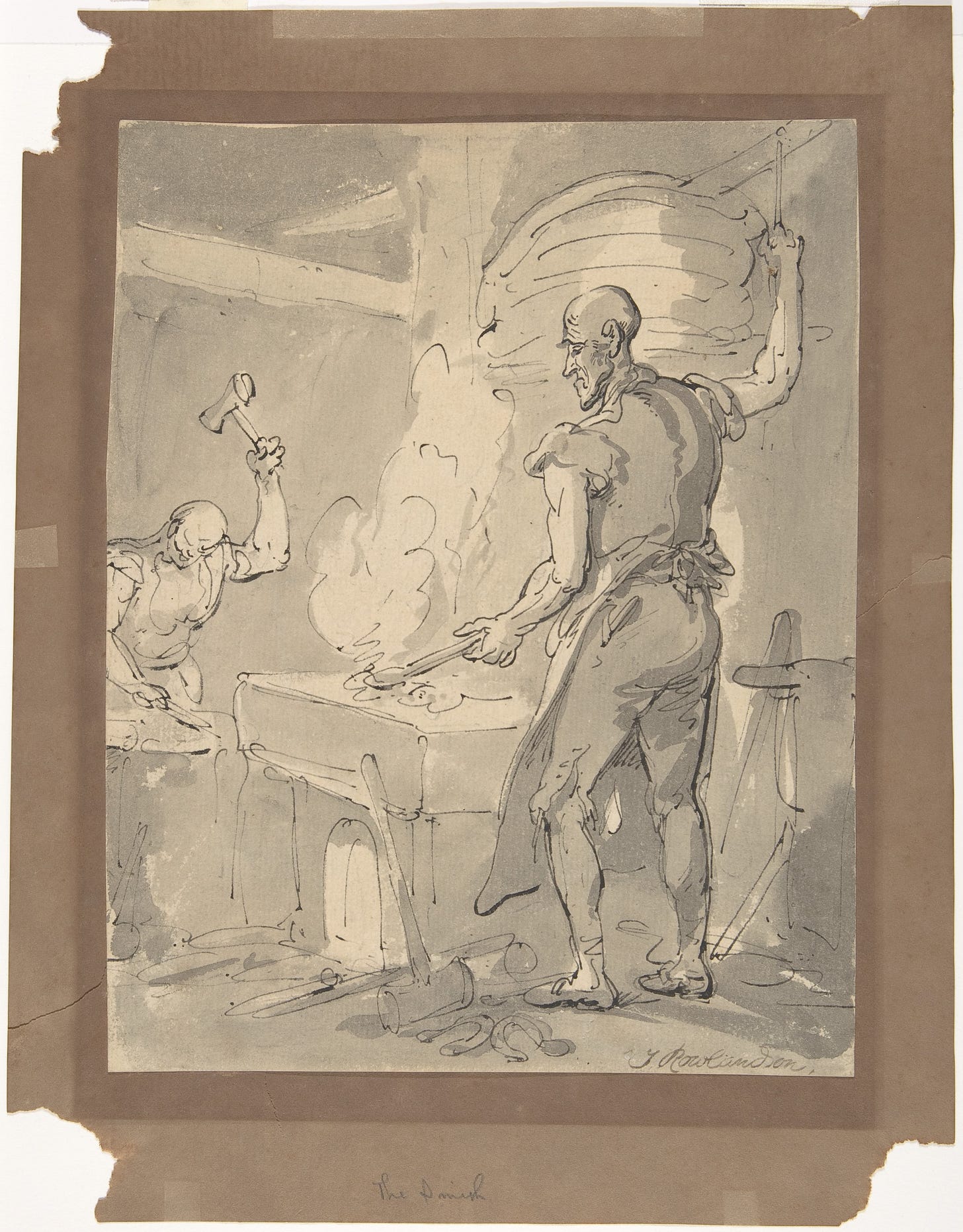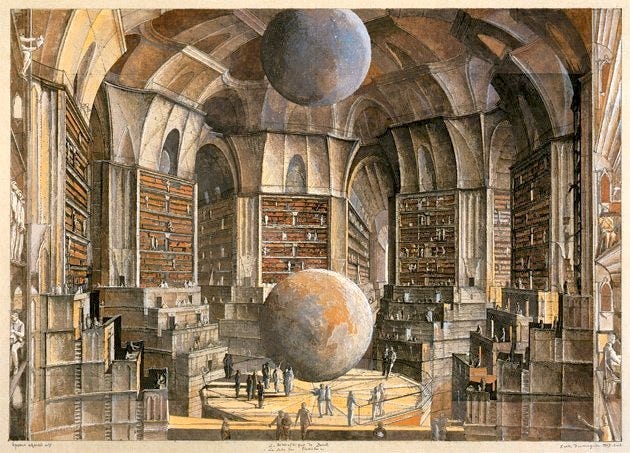I Think I Need Another Project
Feast on life and find that next big project to tackle. But actually read the damn book, too.
The other day, I stumbled on this tweet — or whatever they are now called after the site was renamed to X.
The excerpt here is from a letter written by Proust to a friend, though I haven’t found the original letter. There is a collection of Proust’s letters that I’m hoping to find at my local library, but we will have to see.
I was struck by this little passage. It is beautiful, though I think if someone wrote it today we’d be inclined to say it is a bit saccharine. We live, read, and write in a very cynical age, and that is going to color our experiences. Yet even that deeply ingrained cynicism couldn’t keep me from loving this.
I have never read Proust, however. For a very long time, it was categorized with old, fussy, musty books, books I’d never bother with since I generally like to be entertained or intellectually challenged, and those books just seemed like they were boring for the sake of being boring. I’ve now seen the error of my ways, and so I recently placed In Search of Lost Time – all seven volumes! – on my list of books to be read. Reading Proust would be a very big project.
And that got me thinking about the idea of reading projects in general. I’m going to write a bit about the whole thing below – this isn’t a paywalled post, so anybody can read it – but I wanted to put some questions for discussion near the beginning. This seems like a good place.
Do ever think of reading projects? These could be systematic reads of an author, getting to know the nooks and crannies of their corpus. These could be topical studies, akin to a master’s student doing her literature review. Or perhaps it is just tackling some series or multi-volume novel that you’ve been wanting to read.
Do you ever follow through on these projects? Or do they tend to just pile up in notebooks or in the back of your mind?
What’s the last big project you've tackled? And what’s the next project you’re considering?
When I was in graduate school, I had to pick a topic for my dissertation. It’s a struggle for many graduate students, who often decide to get an advanced degree in a subject because they find it all so interesting. But a dissertation requires a kind of monomaniacal focus. You have to write on just one topic, and ideally a niche within that topic.
Two types of struggles crop up when you’re picking your dissertation topic. First, you feel that by choosing, say, theories of truth, you’re declaring to the world that you aren’t interested in everything else: in German Idealism, in the history of skepticism from the Greeks to Hume, in some debates within political philosophy, etc. By choosing one topic, you suspect that you’re devaluing all the others.
The second struggle is in picking something that can sustain your interest for 3-5 years, and perhaps longer if you get an academic job and want to turn your dissertation into a book. Is this topic really the kind of thing you read and write about for half a decade? Or longer?
Graduate students make two mistakes when trying to overcome these struggles. For the first one, they try to make their dissertations about everything — sure I’m writing on logic and theories of truth, but why can’t I have a chapter on Hegel and another on Hume? By making their focus everything, it ends up saying nothing of interest. There’s no room for depth. For the second, they often try to maintain a few projects at a given time — their dissertation project, plus a few side projects. The side projects tend to overwhelm the dissertation, and so the dissertation doesn’t get written.
These same struggles, and these same mistakes, crop up when you’re thinking about a big reading project. I want to read Proust — but I never did finish Infinite Jest. I want to read German philosophers in the original — but surely I also need to brush up my Latin. I want to finally under Marx’s theory of alienation — but I could instead spend my evening reading about the Protestant Reformation. The end result? Many aborted projects, with perhaps one completed after many months or even years.
The basic lesson, I suppose, is that work requires a special kind of focus. Not just the focus of an hour or two, but focus which can be sustained for weeks and weeks.
Sometimes the tone of this newsletter is awfully didactic — hey, dear reader, have you considered being a bit more like me? But on this issue, I am very much not the model. In graduate school I was, I think, doing it right, but nowadays? I’m the worst of the bunch.
Here are a few projects I am somewhat engaged in right now:
In an effort to understand a political ideology to which I do not adhere, I have been reading the works of Karl Marx and later Marxists, as well as critical commentators. I justify this by saying it is important to know why you do or do not believe in a major political ideology.
I am reading the works of Tolkien, some for the first time, for a video on the philosophy of Tolkien. This is easily justified, since I make videos for a living and need material.
I am reading the manga Vagaond and Eiji Yoshikawa’s novel about Musashi. Again, this is for a video. But maybe I should be a little more focused on that Tolkien reading and Tolkien video, since I can only really make one video at a time.
I am compiling readings about the philosophy of anxiety, which I haven’t read much about. Again, a potential video is the culprit.
On the one hand, I need to read about a variety of topics in order to make this YouTube thing work — but if I keep starting projects, I’ll never actually make a video. This Tolkien video has been in the pipeline for at least six months, maybe longer. I could read everything Tolkien ever wrote in six months, if I were to really dedicate myself to it.
So why haven’t I? Because I am allowing myself to be pulled in many directions. And now I have the audacity to think about reading Proust!





First, I love to hear you are reading Tolkien and Vagabond. Two of my personal favorite works.
I am feeling this similar torn feeling, mine is between reading “The Great Books” collection, which I started earlier this year, reading the Dune Chronicles, and learning Japanese.
I started with the Iliad and Odyssey and got a start on Greek Tradegy, and then I paused to start a reread of Dune which I am up to the 5th book, but now all I want to do is study Japanese and do an immersion course. Which I think I may just jump into.
There is something very valuable to reading deeply, and I think it is necessary to truly understand authors and topics. But I also think reading 2-3 things at once can often help to inform your simultaneous readings. As I was reading Greek Tragedy and Dune, I noticed the simple, but meaningful connection the Herbert wrote Dune as an Epic, like the Iliad, and Dune Messiah is written like a play, or a tragedy. Seeing these forms echoed in more modern literature got me super excited and wanting to study them both more and understand how Herbert was informed by some of the great works.
All that to say, I totally agree with reading deeply and I love to do so, for me, right now it seems I can stick with a topic for 3-4 months, which often feels sufficient, but someday it would love to really throw myself at a bigger project.
This came at the right time, thank you.
I recently got laid off too and I’m finally putting my efforts into Count of Monte Cristo